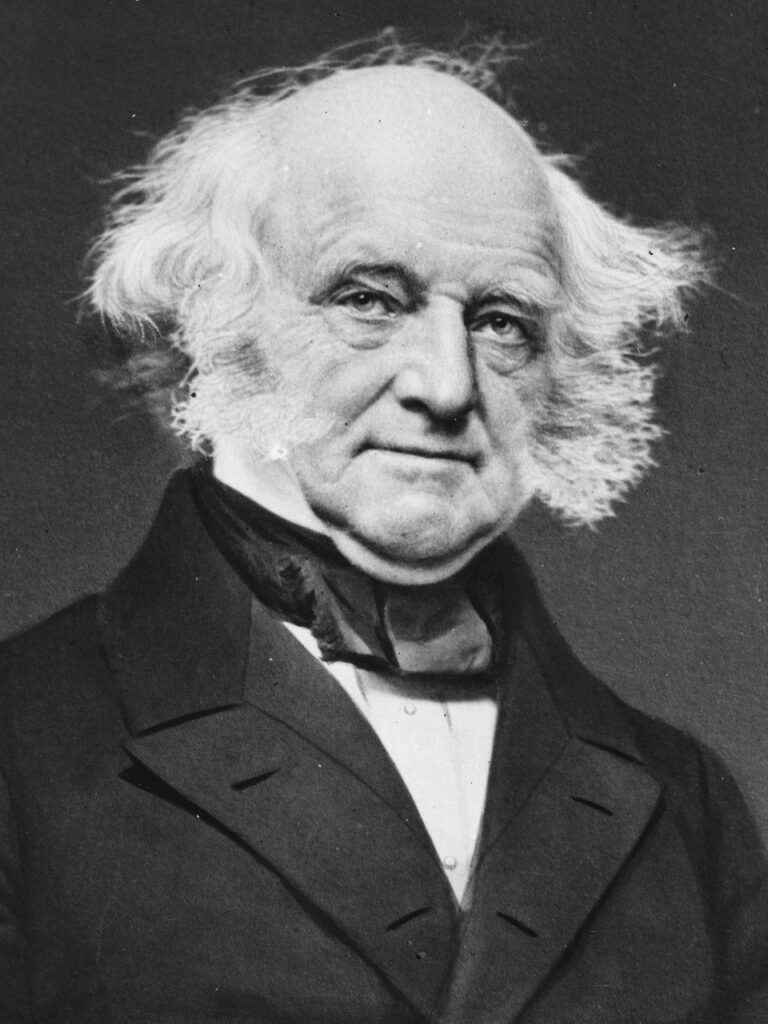
To listen to today’s reflection as a podcast, click here
When challenged to name an influential president, most Americans gravitate to those four granite heads on Mount Rushmore.
Washington, Lincoln, Jefferson, and Teddy Roosevelt, after all, were undeniably key difference-makers in our nation’s history.
But it’s likely that the president who will most influence your speech today will be America’s eighth chief executive, Martin Van Buren.
When Van Buren was trying to win a second White House term in 1840, his supporters began looking for a catchy slogan.
Since he hailed from the village of Kinderhook in eastern New York, the aging politician who seemed to be suffering a never-ending bad hair day was identified as “Old Kinderhook.” That became shortened to O.K. Soon enough the Democratic Party began hosting “OK balls” and established “OK clubs.”
Vote for Martin Van Buren. He’s OK!
As it turned out, Van Buren lost the election. His opponent, Wiliam Henry Harrison, also made a lasting contribution to American slang. The president-elect’s supporters crafted huge balls that they rolled from village to village, shouting, “Keep the Harrison ball rolling!” The next time you urge someone to keep the ball rolling, you’re hearkening back to a “high tech” campaign innovation that predates the Civil War.
Van Buren may have disappeared from the national stage, but OK lives on.
Almost two centuries later, it will no doubt be spoken, typed, texted, or hand-signaled billions of times today.
What’s fascinating is that OK – which was originally intended to signify the highest grade presidential material – is now synonymous with mediocrity. It’s come to mean “fairly average.”
So how was your spring break trip? Oh, it was OK. What do you think of that new restaurant? OK, I guess. The food was meh.
If you’re evaluating an experience on a scale that has total despair at one end and pure bliss at the other, “OK” falls somewhere in the middle.
Nobody wants to come to the finish line of their one-and-only shot at life on earth and have to say, “All things considered, I guess I had an OK life.”
God has such a deeper dream for all of us.
God longs for us to know shalom, a Hebrew word that is usually translated “peace.” But shalom is far more than merely the absence of chaos or noise.
Shalom is the comprehensive human experience of wholeness, health, security, tranquility, fullness, rest, harmony, and completeness that can become ours, in its deepest sense, only through a heartfelt dependence on God through Jesus Christ.
Shalom springs from a joyful awareness of God’s presence – even when life hurts.
Think of the one thing that is most likely to keep you awake tonight. Who or what are you counting on to help you face that worry or fear?
“You will keep in perfect peace [shalom] those whose minds are set on You, because they are always counting on You” (Isaiah 26:3).
Generations have discovered, from experience, that that promise is A-OK.
